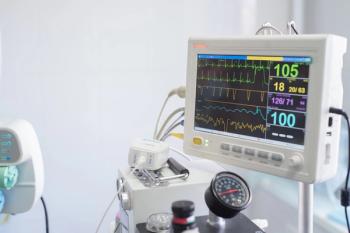
Could music therapy benefit postoperative pain?
In a recent study, patients undergoing music therapy reported better pain and stress scores, as well as improved pulse rates.
Music is beneficial for pain, stress, and phycological markers among postoperative patients, according to a recent study published in the Journal of Pharmacy & BioAllied Sciences.1
Biological responses, psychological states, and social conditions all impact pain. Any level of pain following surgery is reported in over 80% of patients, with significant adverse impacts caused by chronic postoperative pain.1
Poor pain management may lead to immobility, poor respiratory mobility, and nutritional failure. This highlights the importance of optimizing pain management to improve patient outcomes.1
Certain populations may experience worse postoperative pain management, such as undertreated pain following gynecologic surgery among patients who do not speak English.2 In a retrospective cohort study, the use of oral morphine equivalents (OMEs) was compared between English-speaking (ES) and non-English-speaking (NES) patients.
NES patients used 31.7 OMEs per day vs 43.9 OMEs among ES patients. ES patients were also more likely to receive a larger prescription size than NES patients. Less OMEs were reported among Asian and Black patients than their White counterparts, and ES patients received 19.5 more OMEs per day than NES patients in the hospital, highlighting a disparity in pain management.2
There may be benefits from non-pharmacological therapies such as music, as these methods are affordable and simple to use.1 Investigators conducted a quasi-experimental study to determine the efficacy of music therapy toward treating patients’ postoperative pain, stress, and physiological parameters.
Participants included abdominal surgery patients aged 18 to 65 years admitted to the surgical ward through purposive sampling. Additional eligibility criteria included ASA grade 1 or 2 status and hospitalization for at least 1 day before surgery and 3 days after. Patients with cognitive or behavioral problems, hearing illnesses, or long-term painkiller use were excluded from the analysis.1
Demographic and clinical data was obtained through a self-structured questionnaire. Pain medication use was also reported, including opioids and NSAIDs, routes, dosages, times, and amounts. Alongside standard care, the experimental group underwent 7 days of 30-minute music intervention.1
There were 60 patients included in the final analysis, all of whom received GA-type anesthesia and had 3 to 5 days of hospitalization. Additional comorbidities were reported in 11 patients and no history of stress management in 8.1
During the pretest, 70% of the experimental group reported severe pain. During the posttest, mild pain was reported by 66.7% and moderate to severe pain by 33.3%. These rates were 60%, 40%, and 43.3%, respectively, in the control group.1
Moderate to high stress levels were reported in the experimental group compared to higher levels in the control group. Similar vital signs were reported in the experimental group both pretest and posttest.1
Pretest pain and stress levels did not significantly differ between groups, but these levels differed significantly between groups posttest. Music therapy was linked to a high reduction in postoperative pain, with a visual analogue score reduction of at least 12 mm.1
Similarly, while pretest pulse rates were similar between groups, there were significant variations posttest. The music therapy group had significantly improved pulse rates, systolic blood pressure, and oxygen saturation levels.1
These results indicated significantly reduced postoperative pain, stress, and physiological indicators following music therapy. Investigators concluded music therapy may be used as an affordable, non-pharmalogical intervention for postoperative treatment.1
References
- Cecyli C, Vasika R, Jagadeeswari J, Priyadarsini A, Dayana BAA. Impact of music therapy on pain, stress, and physiological parameters among postoperative patients. Journal of Pharmacy and Bioallied Sciences. 2024;16(3):2895-2897. doi:10.4103/jpbs.jpbs_543_24
- Krewson C. Language barriers linked to worse gynecologic surgery pain management. Contemporary OB/GYN. April 29, 2024. Accessed October 10, 2024.
https://www.contemporaryobgyn.net/view/language-barriers-linked-to-worse-gynecologic-surgery-pain-management
Newsletter
Get the latest clinical updates, case studies, and expert commentary in obstetric and gynecologic care. Sign up now to stay informed.









